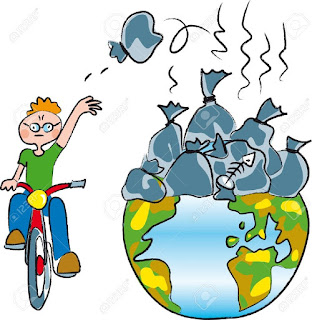Why don't we recycle food waste?
About 40% of the foods we produce is lost or wasted without being consumed. The lost and wasted food contains not only nutrients, but also water, land, energy, and money used to produce that food. It is therefore wise to recycle all food wastes to recover the resources, but in practice, it is not done as widely as possible due to:
Absence of segregation at source: Households must segregate at least the biodegradable wastes from the non-degradable wastes. The mixed wastes presently collected by the municipal authorities are difficult and expensive to separate them for recycling.
Collection costs are high: It is expensive to collect all the food wastes from dispersed sources for recycling.
Health problems associated with the improperly stored and disposed food wastes: Owing to poor storage and indiscriminate disposal of food wastes, flies and other organisms frequent the wastes that can harm the health of the collectors and processors.
Awareness creation, education, and enforcement of segregation of wastes at source is the way forward to recycle all food wastes and to recover the nutrients and other resources from the wastes.
Awareness creation, education, and enforcement of segregation of wastes at source is the way forward to recycle all food wastes and to recover the nutrients and other resources from the wastes.
Financial gains: Food loss and wastes cost the world up to $940 billion a year, so reducing it and recycling it just makes financial sense.
Food security: About 1 out of every 9 people globally is undernourished, meaning they don’t get enough to eat on a daily basis. Reducing food wastes could be an important strategy in making more food available without needing to increase production.
Environmental benefits: Lost and wasted food uses a quarter of all water used for agriculture, requires land area the size of China to grow, and contributes 8 percent of all greenhouse gas emissions. If food loss and wastes were its own country, it would be the world’s third-largest greenhouse gas emitter!
SE food waste converter is an automated on-site compostable waste processing system. We use state of the art Multi-stage indirect heat and dry decomposition process in our machines. The system is equipped with water recycling technology that uses the condensate run out to control the humidity in the processing Chamber, which in turn translates to faster processing speeds.
We are one of the largest organic waste converter manufacturers in India. With two manufacturing units at Kochi and Bengaluru and corporate offices in Kerala, Bengaluru, Chennai and New Delhi, we are a key player in this segment. Solwearth’s mission for its products is to be the most reliable and cost-effective food waste management in India.
To know more visit: www.solwearth.com



https://nachiketgroup.com/organic-waste-composting-machine/
ReplyDeleteThis is excellent information. Thanks for sharing.
Organic Waste Composting Machine
I got here much interesting stuff. The post is great! Thanks for sharing it! Builders Waste Disposal Melbourne
ReplyDelete